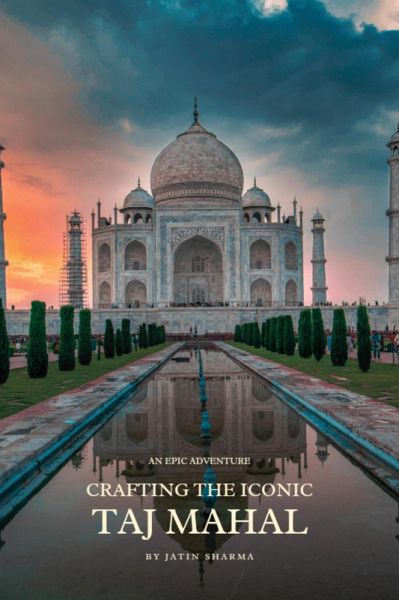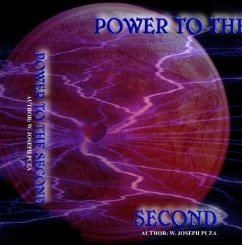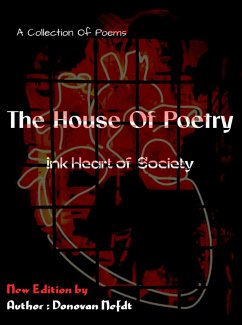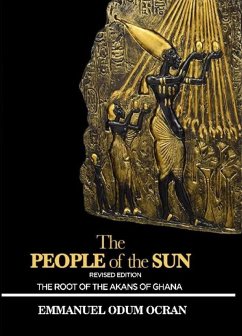
Crafting The Iconic Taj Mahal (eBook, ePUB)

PAYBACK Punkte
0 °P sammeln!
In the heart of Agra, India, lies an enduring testament to love and architectural grandeur - the Taj Mahal. This iconic masterpiece, bathed in the ethereal glow of white marble, stands as a poignant symbol of devotion and artistic brilliance. Commissioned by the Mughal Emperor Shah Jahan in the early 17th century, the Taj Mahal encapsulates a love story that transcends time.The narrative unfolds with the passionate love between Shah Jahan and his cherished wife, Mumtaz Mahal. Their serendipitous encounter at the royal bazaar marked the inception of a profound connection that would shape the de...
In the heart of Agra, India, lies an enduring testament to love and architectural grandeur - the Taj Mahal. This iconic masterpiece, bathed in the ethereal glow of white marble, stands as a poignant symbol of devotion and artistic brilliance. Commissioned by the Mughal Emperor Shah Jahan in the early 17th century, the Taj Mahal encapsulates a love story that transcends time.
The narrative unfolds with the passionate love between Shah Jahan and his cherished wife, Mumtaz Mahal. Their serendipitous encounter at the royal bazaar marked the inception of a profound connection that would shape the destiny of a monumental structure. Married in 1612, Mumtaz became the emperor's confidante, accompanying him through military exploits and diplomatic endeavours.
However, tragedy struck in 1631 when Mumtaz Mahal passed away during childbirth, leaving Shah Jahan inconsolable. Driven by an unwavering commitment to immortalize their love, the emperor embarked on an ambitious project - the construction of the Taj Mahal.
This tale is not merely one of architectural magnificence but a saga of grief, determination, and undying love. Intricate design, melding Persian, Islamic, and Indian influences, resulted in a mausoleum adorned with precious stones and breathtaking carvings. The symmetrical perfection of the Taj Mahal, with its central dome and meticulously landscaped garden, speaks volumes about the craftsmanship of artisans drawn from across the Mughal Empire.
As we delve into the secrets of the Taj Mahal, we encounter myths and legends, including Shah Jahan's purported plan to build a parallel black marble mausoleum for himself across the Yamuna River. The twists of fate, political upheavals, and Shah Jahan's eventual imprisonment within the Agra Fort only add layers to this captivating narrative.
Today, the Taj Mahal stands not only as a UNESCO World Heritage Site but as an enduring symbol of eternal love. Its captivating beauty and the story of Shah Jahan and Mumtaz Mahal continue to enchant millions of visitors, weaving a tale that echoes through the annals of time and resonates with the harmonious blend of Persian, Indian, and Islamic influences
The narrative unfolds with the passionate love between Shah Jahan and his cherished wife, Mumtaz Mahal. Their serendipitous encounter at the royal bazaar marked the inception of a profound connection that would shape the destiny of a monumental structure. Married in 1612, Mumtaz became the emperor's confidante, accompanying him through military exploits and diplomatic endeavours.
However, tragedy struck in 1631 when Mumtaz Mahal passed away during childbirth, leaving Shah Jahan inconsolable. Driven by an unwavering commitment to immortalize their love, the emperor embarked on an ambitious project - the construction of the Taj Mahal.
This tale is not merely one of architectural magnificence but a saga of grief, determination, and undying love. Intricate design, melding Persian, Islamic, and Indian influences, resulted in a mausoleum adorned with precious stones and breathtaking carvings. The symmetrical perfection of the Taj Mahal, with its central dome and meticulously landscaped garden, speaks volumes about the craftsmanship of artisans drawn from across the Mughal Empire.
As we delve into the secrets of the Taj Mahal, we encounter myths and legends, including Shah Jahan's purported plan to build a parallel black marble mausoleum for himself across the Yamuna River. The twists of fate, political upheavals, and Shah Jahan's eventual imprisonment within the Agra Fort only add layers to this captivating narrative.
Today, the Taj Mahal stands not only as a UNESCO World Heritage Site but as an enduring symbol of eternal love. Its captivating beauty and the story of Shah Jahan and Mumtaz Mahal continue to enchant millions of visitors, weaving a tale that echoes through the annals of time and resonates with the harmonious blend of Persian, Indian, and Islamic influences
Dieser Download kann aus rechtlichen Gründen nur mit Rechnungsadresse in A, B, CY, CZ, D, DK, EW, E, FIN, F, GR, H, IRL, I, LT, L, LR, M, NL, PL, P, R, S, SLO, SK ausgeliefert werden.













